
Son Tra District: Da Nang's Hidden Gem
Welcome to Son Tra District, a stunning coastal area in Da Nang, Vietnam, where the natural beauty meets cultural richness. Nestled on the Son Tra Peninsula, this neighbourhood is known for its lush greenery, serene beaches, and vibrant marine life. The district is a haven for nature lovers with the Son Tra Nature Reserve offering a sanctuary for rare species like the Red-shanked Douc Langur. Hike through its trails to discover panoramic views of the ocean and the city skyline. Son Tra District is also home to the impressive Linh Ung Pagoda, where you'll find the towering Lady Buddha statue, a symbol of peace and protection for the local fishermen. This spiritual site offers a tranquil escape and a chance to reflect amidst picturesque surroundings. The pagoda's architecture and the serene atmosphere make it a must-visit. For those seeking relaxation, the district's pristine beaches such as My Khe and Bai But provide the perfect spots to unwind. The crystal-clear waters are ideal for swimming, snorkeling, and even diving. Additionally, the local seafood restaurants serve up fresh catches daily, allowing you to indulge in the flavors of the sea while enjoying stunning coastal views.
Local tips in Son Tra District
- Visit early in the morning to avoid crowds at Linh Ung Pagoda and enjoy a peaceful experience.
- Bring your own snorkeling gear to make the most of the clear waters at Bai But Beach.
- Hire a local guide for a hike in Son Tra Nature Reserve to learn about the diverse flora and fauna.
- Try the local seafood at the beachside restaurants for a fresh and authentic dining experience.
- Pack sunscreen and insect repellent to stay comfortable throughout your visit.
Son Tra District: Da Nang's Hidden Gem
Welcome to Son Tra District, a stunning coastal area in Da Nang, Vietnam, where the natural beauty meets cultural richness. Nestled on the Son Tra Peninsula, this neighbourhood is known for its lush greenery, serene beaches, and vibrant marine life. The district is a haven for nature lovers with the Son Tra Nature Reserve offering a sanctuary for rare species like the Red-shanked Douc Langur. Hike through its trails to discover panoramic views of the ocean and the city skyline. Son Tra District is also home to the impressive Linh Ung Pagoda, where you'll find the towering Lady Buddha statue, a symbol of peace and protection for the local fishermen. This spiritual site offers a tranquil escape and a chance to reflect amidst picturesque surroundings. The pagoda's architecture and the serene atmosphere make it a must-visit. For those seeking relaxation, the district's pristine beaches such as My Khe and Bai But provide the perfect spots to unwind. The crystal-clear waters are ideal for swimming, snorkeling, and even diving. Additionally, the local seafood restaurants serve up fresh catches daily, allowing you to indulge in the flavors of the sea while enjoying stunning coastal views.
Iconic landmarks you can’t miss
Ban Co Peak
Experience breathtaking panoramic views and serene nature at Ban Co Peak, a top tourist attraction in Da Nang, Vietnam.
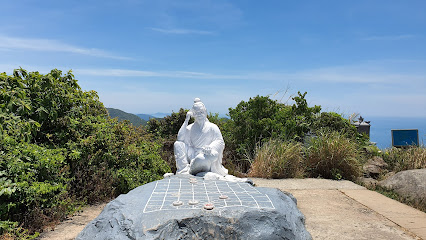
Nhà Vọng cảnh
Explore the breathtaking views and serene beauty of Nhà Vọng Cảnh in Da Nang, Vietnam - a perfect spot for relaxation and reflection.
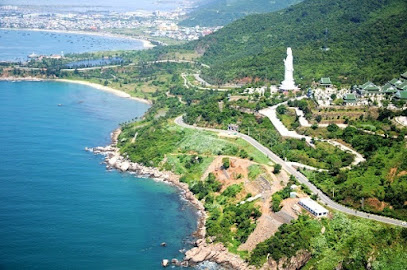
Green Lake Danang
Discover the serene charm of Green Lake Danang, a tranquil oasis perfect for relaxation and exploration in the heart of Vietnam.
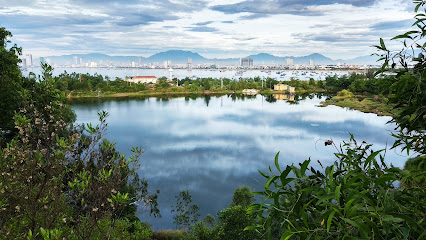
Tinh Vien Son Tra
Unwind in the serene beauty of Tinh Vien Son Tra, a lush garden oasis in Da Nang, Vietnam, perfect for relaxation and nature lovers.
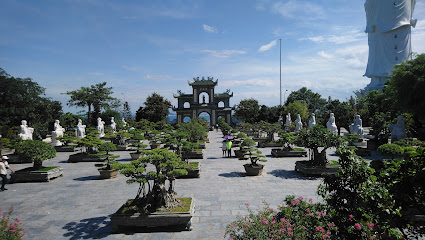
Dong Dinh Art Museum
Explore the Dong Dinh Art Museum in Da Nang, a captivating destination showcasing Vietnam's rich artistic and cultural heritage through diverse exhibitions.
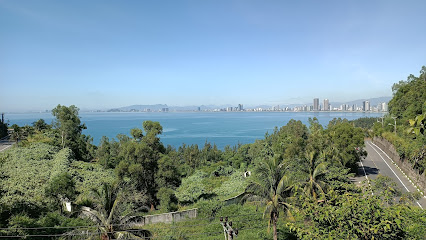
Khu Văn hóa phẩm Phật giáo
Explore the tranquility and spiritual heritage of Khu Văn hóa phẩm Phật giáo in Da Nang, a serene Buddhist cultural site surrounded by beautiful landscapes.
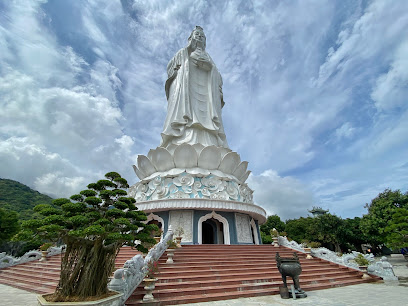
Sơn Trà Radar Station
Discover history and breathtaking views at Sơn Trà Radar Station, a unique destination in Da Nang, Vietnam, blending nature and military heritage.
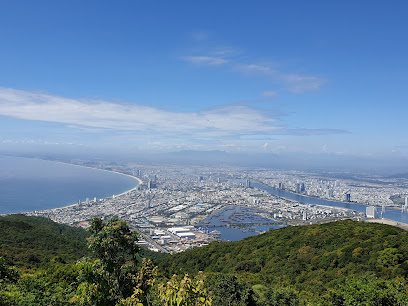
Mũi Súng
Discover the breathtaking beauty of Mũi Sủng in Da Nang, Vietnam, a serene coastal spot perfect for nature lovers and photography enthusiasts.
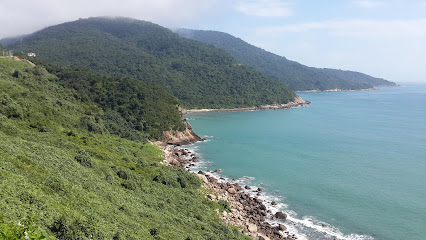
Trạm dừng chân Chùa Linh Ứng
Discover the tranquility and stunning views of Linh Ung Pagoda, a must-visit Buddhist site in Da Nang, Vietnam, offering rich culture and breathtaking scenery.
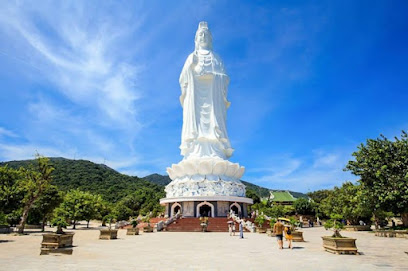
Sân bay trực thăng (Địa điểm lịch sử)
Explore the captivating historical landmark of Sân Bay Trực Thăng in Da Nang, where history and breathtaking landscapes meet.
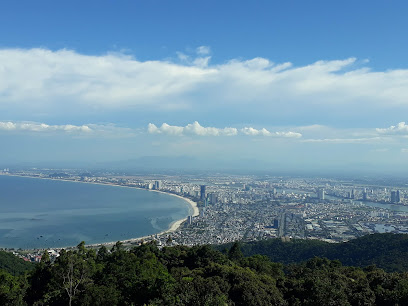
Unmissable attractions to see
Da Nang Museum of Cham Sculpture
Explore the rich heritage of the Cham civilization at the Da Nang Museum of Cham Sculpture, home to the world's largest collection of Cham artifacts.
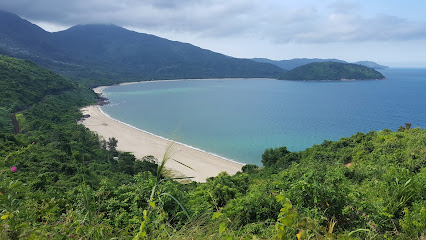
Ban Co Peak
Discover the breathtaking vistas and rich biodiversity of Bản Cờ Peak, a premier tourist attraction in Da Nang, Vietnam, perfect for nature lovers and adventurers.
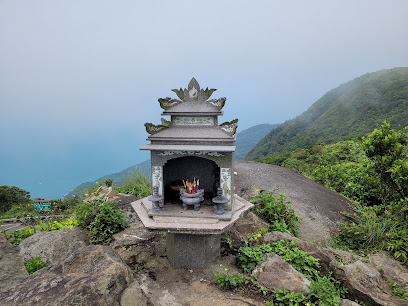
3D Museum Art in paradise Da Nang
Discover a world of creativity at Art in Paradise Da Nang, where 3D art brings imagination to life in a fun and interactive setting.
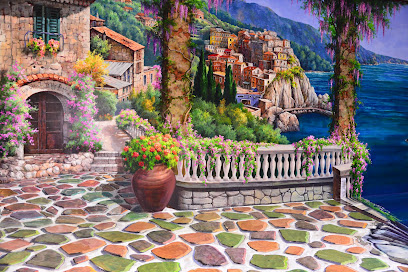
Green Lake Danang
Discover the tranquil beauty of Green Lake Da Nang, Vietnam, a serene escape perfect for relaxation, nature walks, and picturesque views.
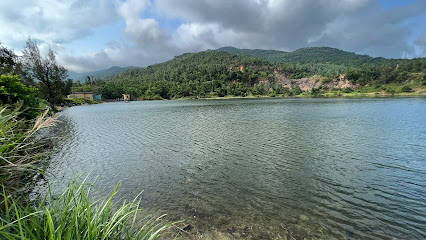
Tinh Vien Son Tra
Experience tranquility amidst lush landscapes at Tinh Vien Son Tra, a serene garden in Da Nang, Vietnam, perfect for relaxation and nature exploration.
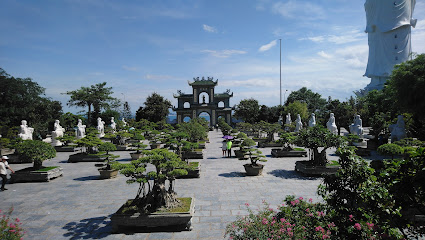
Sơn Trà Radar Station
Discover the historical significance and breathtaking views of Sơn Trà Radar Station in Da Nang, Vietnam, a must-visit for every traveler.
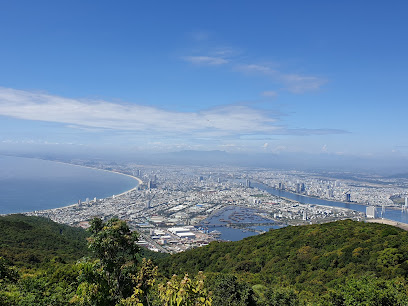
Mũi Nghê
Discover Mũi Nghê, a breathtaking coastal paradise in Da Nang, Vietnam, where stunning views and vibrant culture await every traveler.
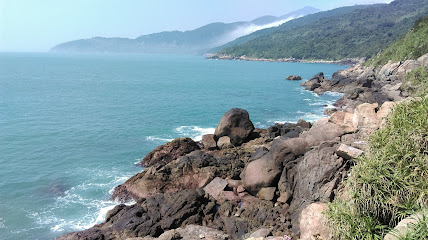
The Monkey Mountain
Explore Monkey Mountain in Da Nang, Vietnam: a breathtaking destination filled with lush landscapes, stunning views, and playful wildlife.
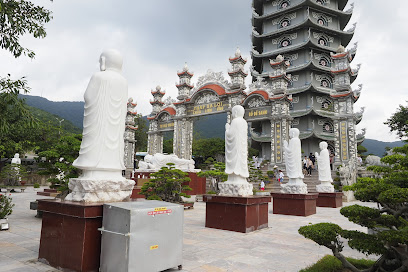
Essential places to dine
EMO'S VIETNAMESE TASTE RESTAURANT
Discover authentic Vietnamese flavors at Emo's Taste Restaurant in Da Nang—where tradition meets modern culinary delights.
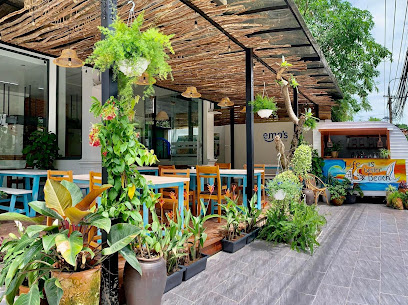
Nhà hàng Biển Rạng
Experience fresh seafood and delightful dim sum at Nhà hàng Biển Rạng in Da Nang - A culinary paradise by the sea.
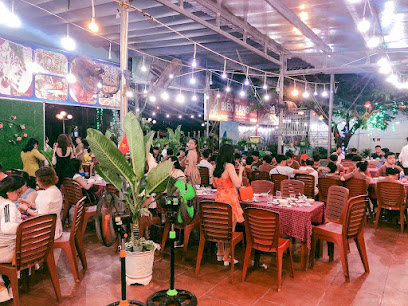
Fatfish Restaurant & Lounge Bar
Discover an exquisite fusion of seafood and cocktails at Fatfish Restaurant & Lounge Bar in Da Nang—where every meal is a coastal celebration.
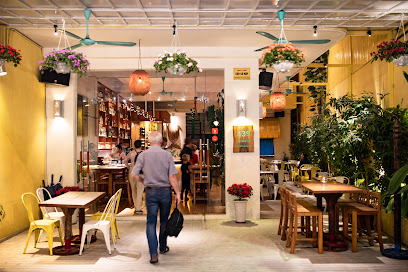
Son Tra Retreat Garden Lounge & Eatery
Discover the flavors of Vietnam at Son Tra Retreat Garden Lounge & Eatery – where culinary excellence meets natural beauty in Da Nang.
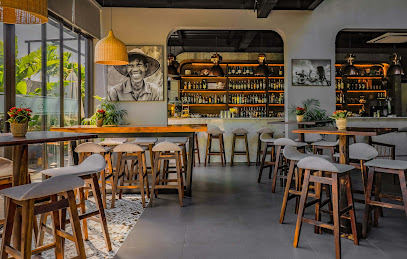
Sky View Restaurant
Experience exquisite French cuisine with stunning views at Sky View Restaurant in Da Nang - where every meal becomes a memorable occasion.
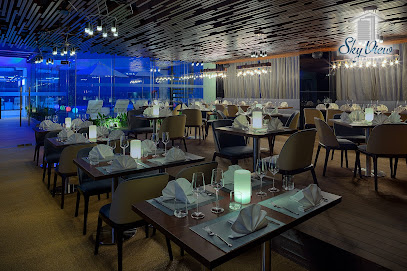
Non La Restaurant
Savor authentic Vietnamese cuisine at Non La Restaurant in Da Nang – where tradition meets flavor in every dish.
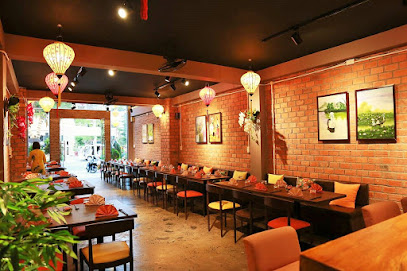
Sofia Restaurant Danang
Discover authentic Vietnamese cuisine at Sofia Restaurant in Da Nang, where every dish tells a story of tradition and flavor.
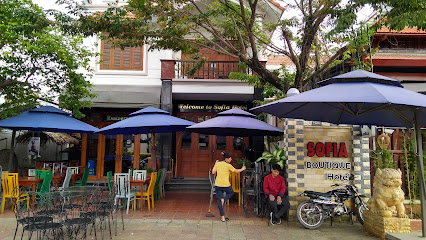
The Temptation
Experience exquisite modern French cuisine at The Temptation in Da Nang – where culinary artistry meets stunning coastal views.
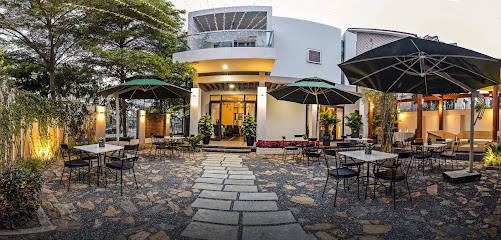
Da Nang Restaurant
Experience authentic Vietnamese cuisine at Da Nang Restaurant - where tradition meets taste in a vibrant coastal setting.
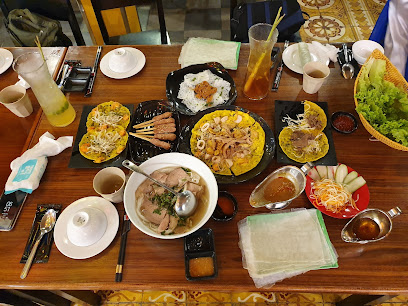
Sơn Trà Hill Restaurant
Discover exquisite Vietnamese cuisine with breathtaking views at Sơn Trà Hill Restaurant in Đà Nẵng's stunning Sơn Trà Peninsula.
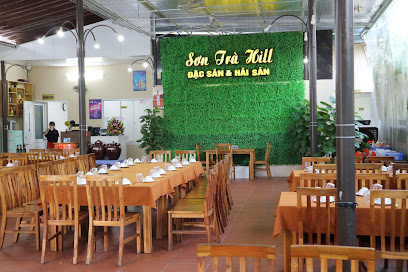
Markets, malls and hidden boutiques
L STORE
Discover the essence of Da Nang shopping at L STORE, where local culture meets unique craftsmanship for an unforgettable experience.
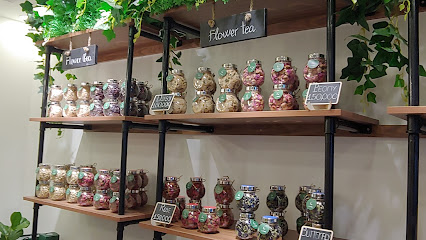
Hoa Ly Shop
Explore Hoa Ly Shop in Da Nang for authentic Vietnamese souvenirs, handcrafted treasures, and a taste of local culture.
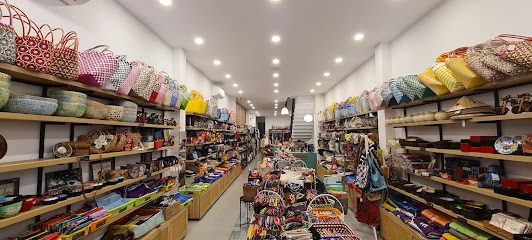
Hantou Souvenirs Shop 기념품 民芸品店
Explore Hantou Souvenirs Shop in Da Nang for authentic Vietnamese crafts, unique gifts, and a delightful shopping experience that celebrates local artistry.
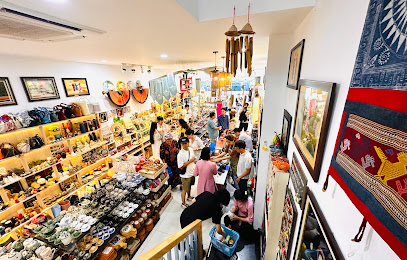
Hello Miss Đà Nẵng
Discover unique Vietnamese fashion at Hello Miss Đà Nẵng, a charming clothing store blending tradition with contemporary style, perfect for every tourist.

Shop Quần Áo Thời Trang DaNangSale Đà Nẵng
Discover the ultimate fashion destination in Da Nang at DaNangSale, offering a diverse range of stylish clothing and accessories for the entire family.

AN NAM SOUVENIRS
Explore An Nam Souvenirs in Da Nang for authentic Vietnamese handicrafts and unique gifts that capture the spirit of Vietnam.
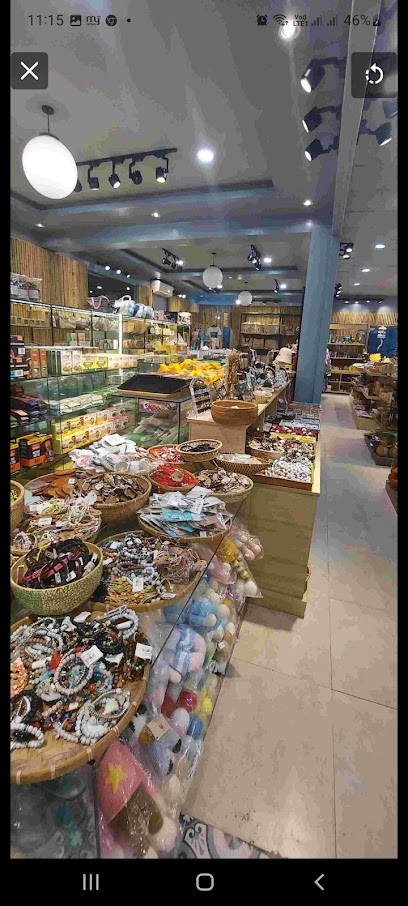
H&M
Experience the vibrant fashion scene at H&M in Da Nang, offering trendy apparel and unique accessories that capture the essence of Vietnamese style.
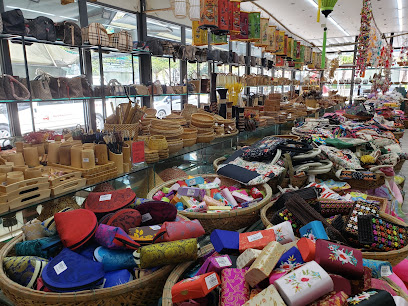
The Rose store
Discover unique local crafts and stylish apparel at The Rose Store in Da Nang, an essential stop for every traveler seeking authentic Vietnamese culture.

Destiny Shop
Explore the lively Destiny Shop in Da Nang, Vietnam, where shopping meets local culture in a vibrant atmosphere filled with unique finds.

Linh Linh Shop Mẹ và bé
Explore Linh Linh Shop Mẹ và bé in Da Nang for an extensive selection of quality children's products and essentials for parents.
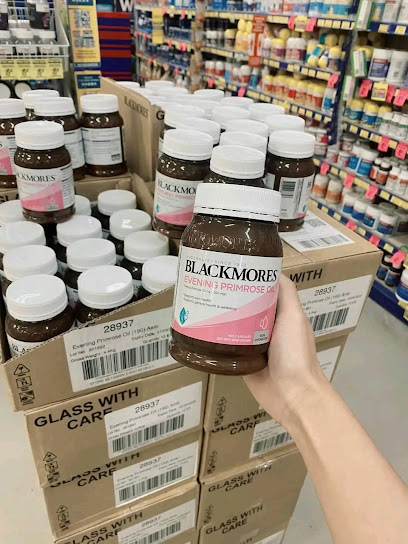
Essential bars & hidden hideouts
Bamboo 2 Bar
Experience the excitement of sports, delicious food, and vibrant nightlife at Bamboo 2 Bar in Da Nang, Vietnam.
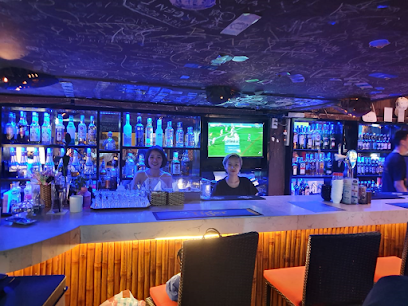
Sky 21 Bar & Bistro
Experience breathtaking views and exquisite cocktails at Sky 21 Bar & Bistro, a premier nightlife destination in Da Nang.
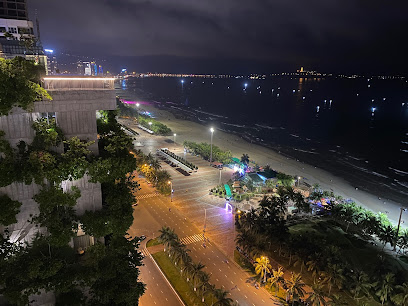
Section 30 - Craft Beer & Cocktail Pub
Experience the best of craft beer and cocktails at Section 30, a lively pub in the heart of Da Nang, Vietnam.
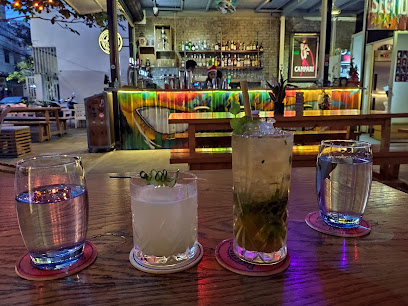
Brilliant Top Bar
Experience breathtaking views and delightful cocktails at the Brilliant Top Bar, the perfect rooftop retreat in Da Nang.
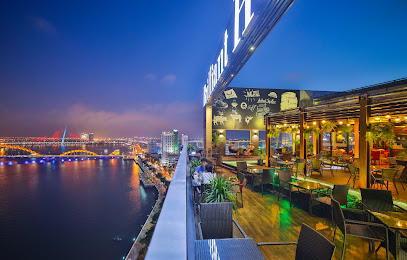
Lounge Beach Bar - Restaurant
Experience the perfect blend of relaxation and exquisite dining at Lounge Beach Bar - a must-visit gem in Da Nang.
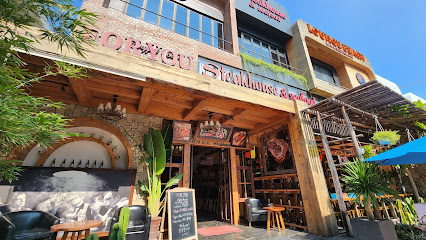
Cork and Bottle - Wine Bar and Retail
Experience the finest wines and a cozy atmosphere at Cork and Bottle, Da Nang's premier wine bar, where every sip tells a story.
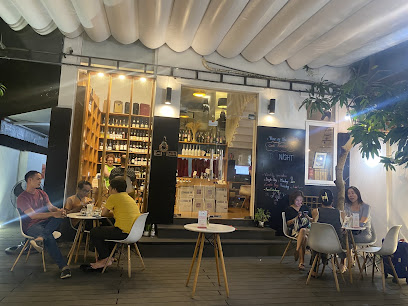
Horizon Bar
Experience breathtaking views and exquisite cocktails at Horizon Bar in Da Nang, a perfect coastal retreat for travelers seeking relaxation and vibrant nightlife.
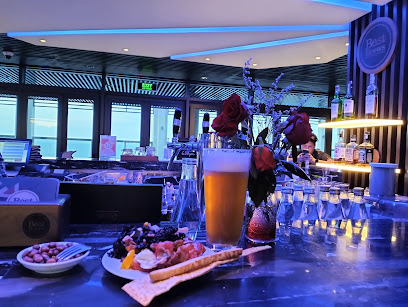
The Hangover Coffee Bar
Discover the vibrant nightlife at The Hangover Coffee Bar in Da Nang, where exquisite cocktails and a lively atmosphere await every visitor.
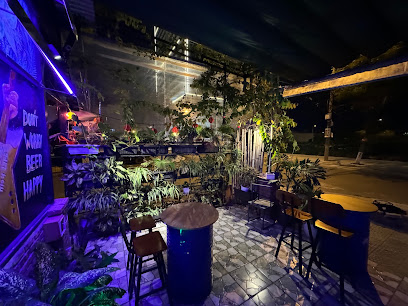
The Speakeasy Bar & Tapas
Experience the charming ambiance of The Speakeasy Bar & Tapas in Da Nang, where cocktails, tapas, and ocean views create an unforgettable evening.
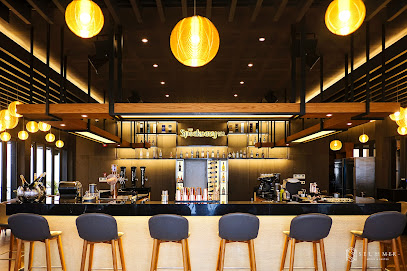
Glory Coffee & Pub
Experience Da Nang's vibrant nightlife at Glory Coffee & Pub, where exceptional cocktails meet a welcoming atmosphere.
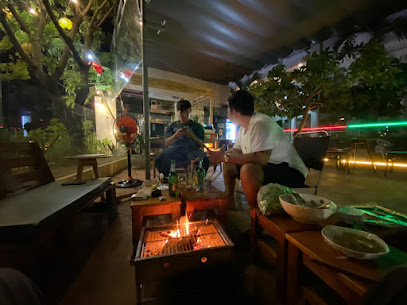
Local Phrases
-
- HelloXin chào
[sin chow] - GoodbyeTạm biệt
[tahm byet] - YesVâng
[vang] - NoKhông
[kohng] - Please/You're welcomeXin vui lòng
[sin vui long] - Thank youCảm ơn
[kahm uhn] - Excuse me/SorryXin lỗi
[sin loy] - How are you?Bạn khỏe không?
[bahn kwe kohng] - Fine. And you?Khỏe. Còn bạn?
[kwe. kawn bahn] - Do you speak English?Bạn có nói tiếng Anh không?
[bahn koh noy tyeng ang kohng] - I don't understandTôi không hiểu
[toy kohng hye-oo]
- HelloXin chào
-
- I'd like to see the menu, pleaseTôi muốn xem menu, vui lòng
[toy muhng sem men-oo, vwee long] - I don't eat meatTôi không ăn thịt
[toy kohng un tit] - Cheers!Chúc sức khỏe!
[chuhk sook kwe] - I would like to pay, pleaseTôi muốn thanh toán, vui lòng
[toy muhng thanh toan, vwee long]
- I'd like to see the menu, pleaseTôi muốn xem menu, vui lòng
-
- Help!Cứu!
[kyoo] - Go away!Đi ra!
[dee rah] - Call the Police!Gọi cảnh sát!
[goy kahng saht] - Call a doctor!Gọi bác sĩ!
[goy bahk see] - I'm lostTôi bị lạc đường
[toy bee lahk doong] - I'm illTôi bị ốm
[toy bee ohm]
- Help!Cứu!
-
- I'd like to buy...Tôi muốn mua...
[toy muhng mwa] - I'm just lookingTôi chỉ xem
[toy chih sem] - How much is it?Bao nhiêu tiền?
[bah-oh nyew tee-en] - That's too expensiveĐắt quá
[daht kwa] - Can you lower the price?Bạn có thể giảm giá không?
[bahn koh te zahm zah kohng]
- I'd like to buy...Tôi muốn mua...
-
- What time is it?Bây giờ là mấy giờ?
[by-gyaw lah may zyaw] - It's one o'clockMột giờ
[moot zyaw] - Half past (10)Rưỡi mười
[roo-ee moo-ee] - MorningBuổi sáng
[bwoi sahng] - AfternoonBuổi chiều
[bwoi chee-ew] - EveningBuổi tối
[bwoi toy] - YesterdayHôm qua
[hohm kwah] - TodayHôm nay
[hohm nigh] - TomorrowNgày mai
[ny-eye my] - 1Một
[moot] - 2Hai
[high] - 3Ba
[bah] - 4Bốn
[buhn] - 5Năm
[nahm] - 6Sáu
[sow] - 7Bảy
[bah-ee] - 8Tám
[tahm] - 9Chín
[cheen] - 10Mười
[moo-ee]
- What time is it?Bây giờ là mấy giờ?
-
- Where's a/the...?Chỗ...ở đâu?
[chuh oh dow] - What's the address?Địa chỉ là gì?
[dee-ah chee la zee] - Can you show me (on the map)?Bạn có thể chỉ cho tôi (trên bản đồ) không?
[bahn koh te chee chaw toy trern bahn doh kohng] - When's the next (bus)?Khi nào là chuyến xe buýt tiếp theo?
[khee now la chwee-en se boo-eet tyep the-oh] - A ticket (to ....)Một vé (đi đến ....)
[moot vay dee dehn]
- Where's a/the...?Chỗ...ở đâu?
History of Son Tra District
-
Son Tra District, often referred to as Monkey Mountain, is steeped in legends that date back centuries. According to local folklore, the area was named after the Son Tra Peninsula, which is believed to be the home of various mythical creatures. The mountain has long been a sacred place for locals, who worshipped deities believed to protect the land and sea.
-
In the late 19th century, during French colonial rule, Son Tra District began to modernize. The French established coastal defenses and built infrastructure, transforming the area into a strategic military base. The remnants of colonial architecture, including villas and churches, reflect this period and can be explored in the district today.
-
During the Vietnam War, Son Tra was of critical military importance due to its strategic location overlooking Da Nang Bay. The United States established a military presence, building radar installations and communications centers. The remnants of these installations can still be found, serving as poignant reminders of the turbulent history of the region.
-
In recent decades, Son Tra has been the focus of cultural heritage preservation efforts. The area is home to several important historical sites, including the Linh Ung Pagoda, which features a giant statue of the Bodhisattva of Mercy and attracts both locals and tourists. These sites reflect the blend of traditional Vietnamese culture with the natural beauty of the region.
-
Son Tra District is also recognized for its rich biodiversity, with the Son Tra Nature Reserve established to protect its unique flora and fauna. The district's commitment to environmental conservation is a significant aspect of its modern identity, drawing attention to the need to balance development with the preservation of natural heritage.
Son Tra District Essentials
-
Son Tra District is easily accessible from other neighborhoods in Da Nang. From the city center, you can take a taxi, which typically costs around 100,000 VND and takes about 15-20 minutes. Alternatively, local buses numbered 1 and 5 connect the district to central Da Nang. If you are arriving from Da Nang International Airport, a taxi ride will take approximately 30 minutes and cost around 200,000 VND.
-
Son Tra District is best explored by motorbike or bicycle, which can be rented from various shops throughout the area. Taxis and ride-hailing apps like Grab are also widely available. Public buses run through the district, but their frequency may be less than in the city center. For those who prefer walking, many attractions, like Linh Ung Pagoda and My Khe Beach, are within a reasonable distance.
-
Son Tra District is generally safe for tourists, but standard precautions should be taken. Avoid walking alone at night in poorly lit areas, especially near the beach. Petty crimes, such as pickpocketing, can occur in crowded places. Be cautious around secluded areas of the Son Tra Peninsula, where wildlife encounters can happen.
-
In case of emergency, dial 113 for police assistance, 115 for medical emergencies, and 114 for fire services. Local hospitals and clinics are available in Da Nang, with several located close to Son Tra District. It's advisable to have travel insurance that covers emergency medical needs.
-
Fashion: Do wear light, breathable clothing suitable for the tropical climate, and swimwear at the beach. Don't wear revealing clothing outside of beach areas, especially when visiting temples. Religion: Do show respect by covering your shoulders and knees when visiting religious sites. Don't take photos in restricted areas. Public Transport: Do be polite and offer your seat to the elderly. Don't eat or drink on public transport. Greetings: Do greet locals with a friendly smile and a nod. Don't be overly familiar; a firm handshake is appropriate. Eating & Drinking: Do try local seafood and street food. Don’t drink tap water; opt for bottled water instead.
-
To experience Son Tra District like a local, visit the local markets for fresh seafood and produce. Engage with fishermen at the beach in the early morning, which offers a glimpse into daily life. Try to explore the lesser-known trails in the Son Tra Peninsula for stunning views and a chance to see the rare red-shanked douc langur. Early morning or late afternoon is the best time for hiking, as temperatures are cooler.
Nearby Cities to Son Tra District
-
Things To Do in Hoi An
-
Things To Do in Tam Ky
-
Things To Do in Hue
-
Things To Do in Quy Nhon
-
Things To Do in Pakse
-
Things To Do in Champasak
-
Things To Do in Savannakhet
-
Things To Do in Ubon Ratchathani
-
Things To Do in Buon Ma Thuot
-
Things To Do in Thakhek
-
Things To Do in Nha Trang
-
Things To Do in Dalat
-
Things To Do in Kratie
-
Things To Do in Ha Long
-
Things To Do in Siem Reap











